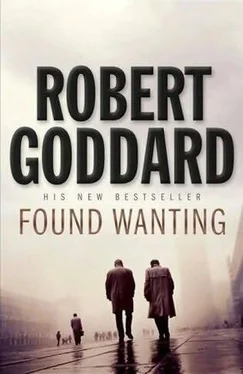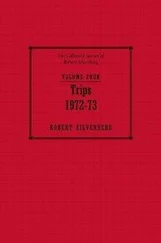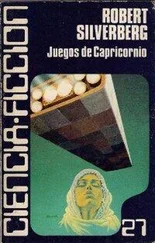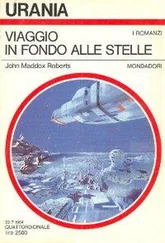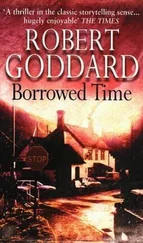Norvig slowed as he neared the turning into the yard. Hugging the wall, he peered cautiously round the corner, then waved for Eusden to follow and vanished from sight.
Norvig was standing with his back against the service door into the building, holding it open, when Eusden caught up with him. The yard was full of shadow and silence, broken only by the tick-tick-tick of the Volvo’s cooling engine. Norvig smiled, his teeth gleaming ghostly pale through the gloom.
‘Kjeldsen was in a hurry,’ he whispered. ‘He left the door to swing shut and didn’t wait to check. Come on.’
They took the stairs two at a time to the third floor. The landing was in darkness, but light glimmered at the edges of the lawyer’s office door.
‘I doubt he’s locked himself in.’ Norvig’s fingers curled cautiously round the handle. ‘Shall we join him?’ Without waiting for a response, he jerked the handle down and flung the door open.
Kjeldsen looked up in alarm from behind his desk. His mouth dropped open. The only light in the room was from a green-shaded reading lamp to his right that turned his face into a pantomime-mask of horror. In front of him, on the desk, stood a battered old leather attaché case. The lid was half-raised, casting towards them a crooked shadow that began to waver in time to the trembling of Kjeldsen’s hand.
‘Skide,’ he said numbly, staring at Eusden. Then he let go of the lid. It fell shut. And on it, revealed by the light from the lamp, Eusden could see the stencilled initials CEH.
Kjeldsen flopped down into the chair behind his desk and spread his hands in a gesture of helpless admission. ‘What can I say, Mr Eusden? I know this… looks bad.’
‘It looks what it is,’ said Eusden, advancing across the room. ‘Theft. Which you’re not going to get away with.’
Kjeldsen started to say something to Norvig in Danish, but the journalist cut him short. ‘ Speak English.’
‘If you prefer.’ He smiled uneasily. ‘Norvig and I know each other, Mr Eusden. We’ve met… in court.’
‘And we’ll be meeting in court again after this.’ Norvig smiled back at the lawyer. ‘You’re in deep shit, my friend.’
Kjeldsen shrugged, as if he regarded that as an open question. ‘You know what the case contains, Mr Eusden?’
‘Letters from Hakon Nydahl to Clem Hewitson, written in the nineteen twenties and thirties.’
‘Ever seen them?’
‘Not till now.’ Eusden raised the lid. There they were in a slewed stack, resting on the faded green baize lining of the case: cream notepaper, filled with black-inked writing in a copperplate hand, the separate sheets of each letter held together with old paper clips that had begun to rust. Eusden picked up the topmost letter. There was an address: Skt Annæ Plads 39, København K, Danmark; a date: den 8. marts 1940 ; and a salutation: Kære Clem . Beneath, sentences in Danish swam across his gaze. It was bizarre but self-evidently true. Clem could read Danish.
‘That’s the most recent,’ said Kjeldsen. ‘The first one’s at the bottom. They cover fourteen years.’
Eusden shuffled through the stack to check. He glimpsed dates in receding order through the thirties and twenties until he came to the first: den 3. januar 1926. The handwriting was slightly more precise than fourteen years later, the strokes of the pen slightly stronger. But Nydahl and Clem had been on first-name terms from the start. That had not changed. Kære Clem…
‘You’ve read them?’ asked Norvig.
‘Ja.’ Kjeldsen nodded. ‘The whole lot.’
‘What are they about?’
‘Who are they about, you mean.’
‘OK. Who?’
‘Peder Aksden. Tolmar’s father. The letters are a record of his life, from sixteen to thirty.’
‘A record?’
‘Ja. Everything about him. What work he did on his parents’ farm. The girls he dated. The books he read. His hobbies. His opinions. His health. His… personality.’
‘That’s crazy. Why would Peder Aksden’s uncle write letters about all that to a retired British policeman?’
‘They’re not really letters to a friend, Henning. They’re reports. For posterity.’
‘Why should… posterity… be interested in Peder Aksden?’
‘Good question. Listen to this.’ Kjeldsen gestured to Eusden for permission to handle the letters. He was behaving meekly and contritely, like someone who accepted that the game was up – or like someone secure in the knowledge that he had the ace of trumps up his sleeve. ‘Is it OK… if I read to you from one?’
‘Go ahead.’
Kjeldsen eased out a letter from the stack, checked the date, then pulled it free. ‘November, 1938. Nydahl is worried about Peder’s engagement to a local girl. This is what he says. Henning can translate for you, Mr Eusden.’
Kjeldsen read the words in Danish, pausing at intervals to allow Norvig to catch up in English. ‘He is determined… to marry Hannah Friis… in the spring… Oluf and Gertrud are worried… and want me to decide…if I should stop him…I remember you and I discussed… the problems a family might cause… and whether we should ever allow him… to have one.’ At that Kjeldsen stopped reading and slid the letter back into place.
‘What “problems” is he talking about?’ asked Eusden.
Kjeldsen smiled thinly. He seemed to be growing more confident, despite the lack of obvious cause.
‘They emerge when you work your way through the letters,’ he replied enigmatically.
‘Why don’t you just tell us?’ demanded Norvig.
‘There’s not enough time.’
‘Bullshit.’ Norvig leant across the desk and looked Kjeldsen in the eye. ‘We’ve got all night.’
‘No. I’m supposed to meet the buyer in less than an hour. I’m already supposed to have phoned him to find out where.’
‘Bad luck.’
‘For you also, Henning. And for you, Mr Eusden. Very bad luck. I’d be willing in the circumstances to share the proceeds with you.’
‘There’s not going to be a sale,’ Eusden declared, reaching for the case.
But Kjeldsen was quicker. He grasped the handle tightly and declared bluntly, ‘Twenty million kroner.’
For a second, no one moved or spoke. Kjeldsen looked at Norvig, then at Eusden. He moistened his lips with his tongue.
‘Twenty million kroner,’ he said softly. ‘A little over two million pounds at the current exchange rate. That’s the price I’ve agreed. So, what do you say, gentlemen? Is it still no sale?’
‘Who’s your millionaire buyer?’ demanded Norvig.
‘It’s safer if you don’t know.’
‘It’s never safer for me not to know something.’
‘In this-’
The burbling of Kjeldsen’s mobile, which lay on the desk next to the case and began circling on its axis as it rang, cut him off. He looked enquiringly at Norvig and Eusden.
‘My buyer must’ve got tired of waiting for me to call.’
‘Let him go on waiting,’ said Eusden. He pushed the lid of the case down and let his hand rest on the rim, a few inches from Kjeldsen’s grip on the handle.
‘If I don’t answer, he’ll send his people to look for me.’
‘Answer it,’ said Norvig.
Eusden glanced round at him suspiciously, wondering for the first time whose side the journalist was on. Norvig shrugged.
Kjeldsen picked up the phone. ‘ Ja? … No, there’s nothing wrong.’ He was speaking English, Eusden noticed, not Danish. Perhaps that meant his buyer was not Danish. ‘OK.’ Kjeldsen let go of the case, grabbed a pencil and scrawled something – a single word – on a notepad. ‘OK… Yes, I can find it… I understand… See you there.’ He rang off and glanced at his watch. ‘I’m due to meet them in half an hour.’
Читать дальше
